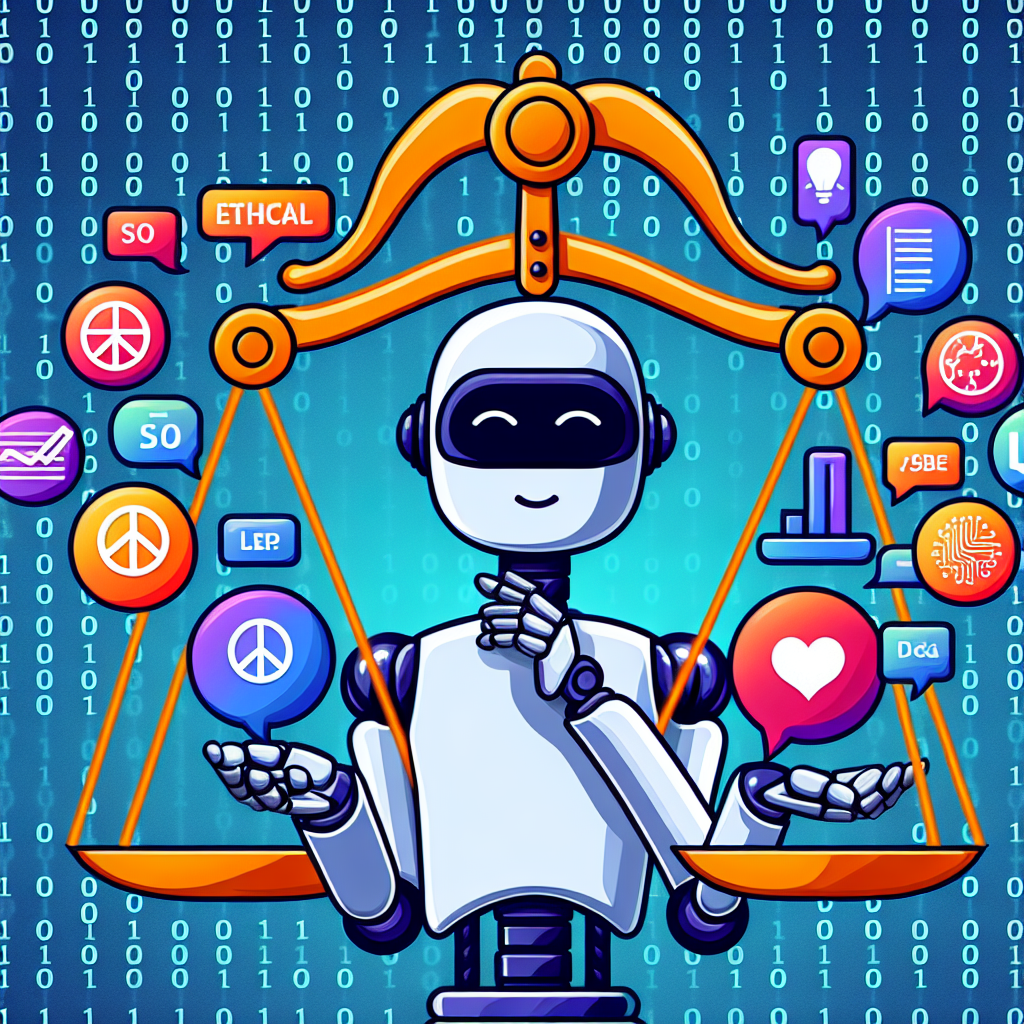Artificial Intelligence (AI) has revolutionized the way businesses operate, including marketing. AI has the potential to significantly streamline marketing processes, improve targeting, and enhance customer experiences. However, as AI becomes more prevalent in marketing, ethical concerns have arisen. This article will explore the ethics of AI in marketing, discussing the benefits and potential risks associated with the use of AI technology in marketing campaigns.
Benefits of AI in Marketing
AI has the ability to analyze vast amounts of data quickly and accurately, providing marketers with valuable insights into consumer behavior and preferences. This allows businesses to create more targeted marketing campaigns that are more likely to resonate with their target audience.
AI also enables marketers to personalize their marketing efforts on a large scale. By analyzing customer data, AI can help businesses create personalized messages and offers tailored to individual preferences. This can lead to higher engagement rates and increased sales.
AI-powered chatbots have become increasingly popular in marketing, providing customers with instant responses to their queries and helping businesses provide better customer service. Chatbots can handle a large volume of customer inquiries, freeing up human agents to focus on more complex tasks.
Risks of AI in Marketing
While AI offers many benefits to marketers, there are also potential risks associated with its use. One of the main concerns is the potential for bias in AI algorithms. AI algorithms are only as good as the data they are trained on, and if this data is biased, it can lead to discriminatory outcomes. For example, if an AI algorithm is trained on data that is biased against certain demographic groups, it may inadvertently discriminate against those groups in marketing campaigns.
Another risk of AI in marketing is the potential for invasion of privacy. AI technology allows marketers to collect and analyze large amounts of data about consumers, raising concerns about how this data is being used and whether it is being used ethically. Marketers must be transparent about how they are collecting and using consumer data to maintain trust with their customers.
The use of AI in marketing also raises concerns about job displacement. As AI technology becomes more advanced, it has the potential to automate many marketing tasks that are currently performed by humans. This could lead to job losses in the marketing industry, particularly for roles that involve repetitive tasks that can be easily automated.
Ethical Considerations in AI Marketing
To address the ethical concerns surrounding AI in marketing, businesses must take steps to ensure that their AI technology is used responsibly and ethically. This includes:
1. Transparency: Businesses should be transparent about how they are using AI technology in their marketing efforts. This includes being open about the data they are collecting, how it is being used, and how it is being protected.
2. Accountability: Businesses should take responsibility for the outcomes of their AI marketing campaigns. If an AI algorithm produces biased results, businesses should take steps to address and rectify the issue.
3. Data Privacy: Businesses must prioritize data privacy and security when using AI technology in marketing. This includes obtaining proper consent from consumers before collecting their data and ensuring that the data is stored securely.
4. Fairness: Businesses should ensure that their AI algorithms are fair and unbiased. This includes regularly auditing and testing AI algorithms to identify and address any biases that may be present.
FAQs
Q: How can businesses ensure that their AI algorithms are fair and unbiased?
A: Businesses can ensure that their AI algorithms are fair and unbiased by regularly auditing and testing the algorithms for biases. This can involve analyzing the data used to train the algorithms, identifying any biases present, and taking steps to address and rectify them.
Q: What are some examples of biased AI algorithms in marketing?
A: One example of a biased AI algorithm in marketing is an algorithm that unintentionally discriminates against certain demographic groups in targeted advertising campaigns. This can occur if the algorithm is trained on data that is biased against those groups, leading to discriminatory outcomes.
Q: How can businesses address privacy concerns when using AI in marketing?
A: Businesses can address privacy concerns when using AI in marketing by obtaining proper consent from consumers before collecting their data, ensuring that the data is stored securely, and being transparent about how the data is being used.
Q: What are some best practices for using AI chatbots in marketing?
A: Some best practices for using AI chatbots in marketing include ensuring that the chatbots are well-trained and able to provide accurate and helpful responses to customer inquiries, personalizing the interactions with customers, and regularly monitoring and updating the chatbots to improve their performance.
In conclusion, AI has the potential to revolutionize marketing, providing businesses with valuable insights, personalized messaging, and improved customer service. However, it is important for businesses to consider the ethical implications of using AI in marketing and take steps to ensure that their AI technology is used responsibly and ethically. By prioritizing transparency, accountability, data privacy, and fairness, businesses can harness the power of AI in marketing while maintaining trust with their customers.

